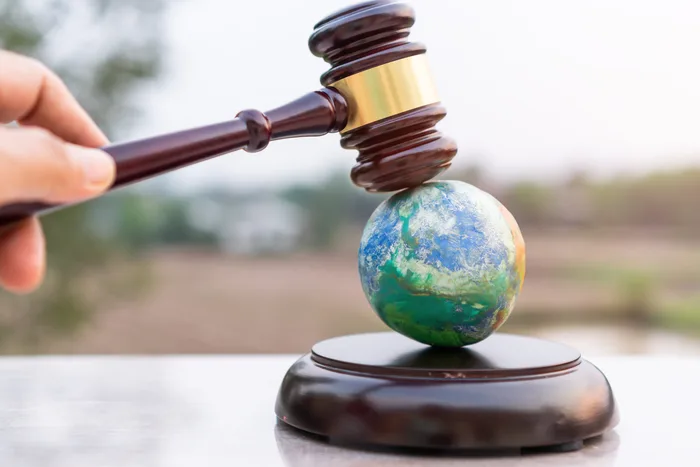Understanding the Legal Environment
A Comprehensive Guide
What is the Legal environment
When we talk about the world of business, we're not just talking about what happens within the walls of a company. It's much bigger than that. The environment in which a business operates is made up of various factors, both inside and outside.
Internal Environment: This is what's happening within the company itself. It includes things like the people who work there, the money and resources they have, the tools and equipment they use, and of course, the management team steering the ship. Basically, it's everything that the company has control over. If the bosses decide they want to change things up, they can tweak policies, adjust how things run, and try to make the business more successful.
External Environment: Now, this is where things get a bit trickier. The external environment is made up of factors that the company can't control. These are things like government rules and regulations, taxes, laws, politics, social trends, economic conditions, and even the geography of the area where the business operates. These factors can have a big impact on how a business operates, but the company itself doesn't have direct control over them.
In short, understanding the legal environment of business is all about recognizing that there are things happening both inside and outside the company that can affect how it operates. By understanding and navigating these factors, businesses can better position themselves for success.

Characteristics of a legal environment of business
Security from Threats: The legal environment of business is safeguarded against both external and internal risks. Across more than 23 countries, specific regulations are enforced to ensure transportation-related safety measures.
Interconnectedness: Within the business sector, seamless communication among various departments is essential. Clear and effective communication fosters cohesion and efficiency.
Dynamic Nature: The business landscape is constantly evolving, and frequent fluctuations in government rules and regulations pose ongoing challenges. Adaptability is key for businesses to thrive amidst these changes.
Robust Loss Prevention Policies: Measures like insurance play a pivotal role in the legal environment, particularly for businesses with turnovers exceeding 1 Cr or 5 Cr. These policies mitigate financial risks and provide essential protection.
To enhance the legal environment, governments enact laws and regulations such as:
Contract Laws: These laws govern agreements between multiple business partners, ensuring the protection of rights and interests.
Consumer Protection Laws: Aimed at safeguarding consumers, these laws cover areas like accurate measurement practices, trade descriptions, and consumer credit protection.
Employee Protection Laws: Designed to uphold the rights of employees, these laws secure their jobs and provide safeguards against unfair termination.
Workplace Health and Safety Laws: These regulations ensure a safe and healthy work environment, protecting employees from potential hazards.
Protection Against Termination: Employees are afforded security against unwarranted termination, ensuring their employment cannot be terminated without just cause.
Types of legal environments
Social Environment: This is all about the rules that keep society fair and respectful. Think of it like the guidelines we follow to protect the environment, promote equality, and uphold basic human rights. For example, there are rules against pollution, discrimination, and unfair treatment of people.
Competitive Environment: Here, companies play by certain rules to keep things fair in the business world. It's like having a referee in a sports game to make sure everyone follows the rules. These rules cover things like protecting ideas and inventions (intellectual property), keeping trade secrets safe, and preventing companies from unfairly dominating a market.
International Legal Environment: Just like countries have their own rules, there are also rules that help different countries do business together smoothly. These rules, often called international laws, make sure that trading goods and services between countries happens fairly. They cover things like trade agreements, contracts between countries, and rules for specific industries that operate across borders.
Regulatory Environment: This is all about the rules made by government agencies to keep things safe and fair for everyone. Imagine it as a set of guidelines to make sure companies don't cut corners or take advantage of people. For example, agencies like the Federal Communications Commission (FCC) or the Securities and Exchange Commission (SEC) make rules to protect consumers and ensure fair competition.
Domestic Legal Environment: This is the rulebook that companies follow in their own country. Every country has its own set of rules, and these laws help companies know what they can and can't do. In a country, there are different levels of government, like local, state, and central (or federal). Each level can make its own rules, but sometimes they work together to make decisions. These laws cover everything from how businesses trade to how they treat their employees and protect the environment.
Understanding these different legal environments helps companies navigate the complex world of business while ensuring fairness, safety, and respect for everyone involved.

The importance of the legal environment in business
Keeping Things in Line: Think of the legal environment as a set of rules that businesses need to follow. These rules cover everything from how you treat your employees to how you handle contracts and taxes. When businesses don't play by these rules, they can get into trouble, facing fines or even legal action. Following the rules isn't just about staying out of trouble—it's also about building trust with customers and partners.
Building Confidence: Imagine if the rules of the road changed every day—it would be chaos! Similarly, having consistent rules in the business world helps everyone know what to expect. This stability allows companies to plan for the future and make decisions with confidence. Plus, it makes it easier for people to trust and invest in businesses that operate within a clear legal framework.
Doing the Right Thing: The legal environment isn't just about avoiding trouble—it's also about doing what's right. By setting standards for behavior, these rules help prevent things like discrimination and environmental harm. This way, businesses can focus on making a positive impact on society while also making a profit.
Guiding Operations: Picture the legal environment as a roadmap for businesses. It lays out the rules for things like contracts, patents, and property rights. Having these guidelines makes it easier for businesses to navigate complex situations and make smart decisions. It's like having guardrails to keep you on track as you run your business.
Staying Safe and Sound: Finally, the legal environment acts as a shield, protecting businesses from harm. Whether it's fraud, unfair competition, or disputes with other companies, these rules provide a safety net. They offer solutions for resolving conflicts and ensure that businesses can operate in a fair and secure environment.
In short, the legal environment isn't just a bunch of boring rules—it's the backbone that keeps businesses running smoothly and ethically. It's about more than just following the law—it's about building trust, doing what's right, and creating a level playing field for everyone involved.
The nature of the business legal environment
The business legal environment is like a big rulebook that guides how companies, people, and governments interact. Let's break down what it's all about:
International Business: Think of it as the rules of the game when businesses work across borders. It helps keep things smooth between countries, making sure everyone plays fair and respects each other's trade agreements.
Taxation: Ever wonder why businesses have to deal with so many taxes? Well, it's all part of the legal environment. These rules make sure companies pay their fair share of income, sales, and property taxes.
Environmental Regulation: Businesses need to operate responsibly, and that includes taking care of the environment. Legal rules help them do just that by setting standards for things like pollution control and resource management.
Intellectual Property: Ever had a great idea and wanted to protect it? That's where intellectual property laws come in. They safeguard inventions, logos, and secret formulas, making sure no one steals or copies them.
Employment: These laws look out for workers' rights, ensuring things like fair wages, safe working conditions, and proper dispute resolution between employers and employees.
Contractual Agreements: Every time businesses make deals, there's a legal framework to make sure everyone sticks to their promises. These rules help create, enforce, and interpret contracts between companies and individuals.
Business Formation: Starting a business? You'll need to navigate through various legal requirements. Whether it's setting up a sole proprietorship, a corporation, or a partnership, there are rules to follow for registration, licensing, and compliance.
Understanding the nature of the business legal environment is like learning the rules of a game. It helps everyone play fair and ensures businesses can operate smoothly and responsibly.
FAQ's
Q. What factors influence the legal environment?
Several factors can influence the legal environment, including:
Legislation: Laws enacted by legislative bodies at the local, national, or international level.
Judicial decisions: Legal precedents set by court rulings and interpretations of the law.
Regulatory agencies: Government agencies responsible for enforcing specific laws and regulations in various industries.
Socioeconomic and cultural factors: Social norms, values, and cultural practices that shape legal attitudes and policies within a society.
Technological advancements: Emerging technologies often prompt updates to existing laws or the creation of new regulations to address novel challenges and opportunities.
Q. How does the legal environment impact business operations?
The legal environment can have significant implications for business operations, including:
Compliance requirements: Businesses must ensure compliance with relevant laws and regulations governing their industry, which may involve implementing policies, procedures, and controls to mitigate legal risks.
Contractual relationships: The legal environment governs the formation, interpretation, and enforcement of contracts, which are essential for establishing agreements with customers, suppliers, employees, and other stakeholders.
Intellectual property protection: Laws related to patents, trademarks, copyrights, and trade secrets protect businesses' intellectual property assets and foster innovation and creativity.
Dispute resolution: The legal environment provides mechanisms for resolving disputes, such as mediation, arbitration, or litigation, which businesses may utilize to enforce their rights or resolve conflicts with other parties.